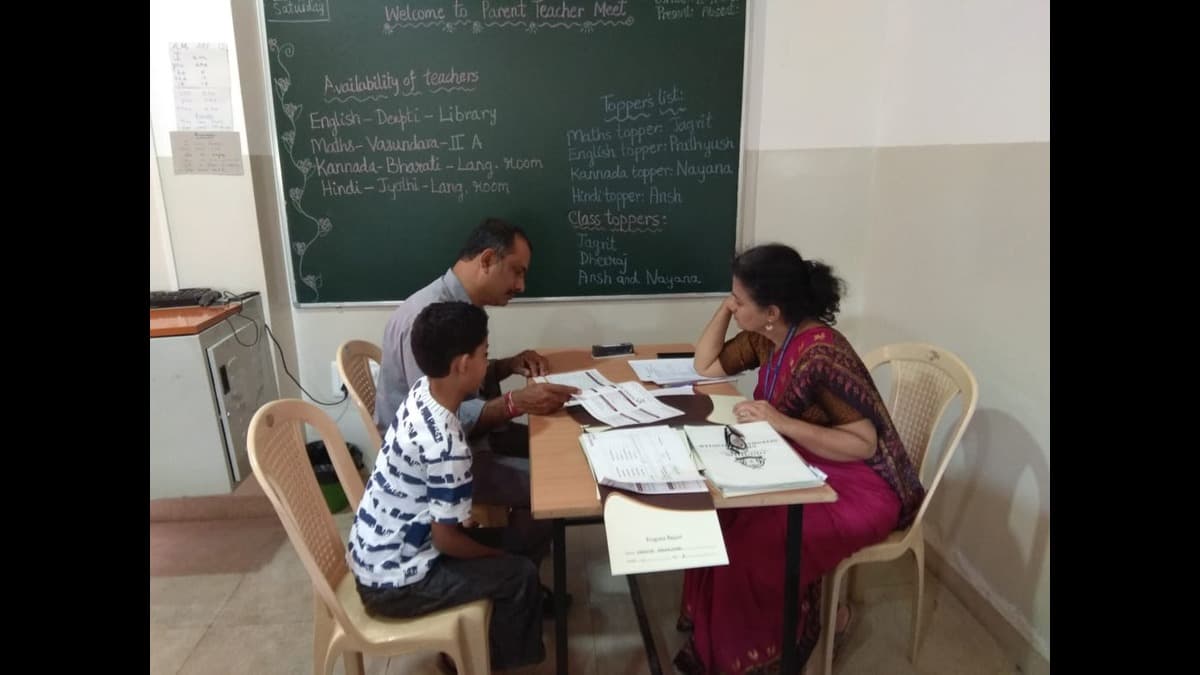Special Needs Parent Experiences
By Abhishek Guddad |
Date 11-10-2023

Table of Contents
Admissions Open for
Introduction
Parenting is a journey marked by joy, challenges, and growth and when it involves a child with special needs, the voyage takes on unique dimensions. The experiences of parents navigating this path are multifaceted, and characterized by a profound blend of resilience, advocacy, and unconditional love. From the moment of diagnosis, parents of children with special needs embark on a transformative journey that tests their emotional, physical, and psychological capacities.
Navigating Uncharted Waters
The moment a child's special needs are diagnosed marks the inception of a transformative journey for both parents and children. Navigating uncharted emotional waters, parents grapple with a range of intense emotions. Shock, confusion, and grief often intertwine with feelings of love, hope, and determination. The initial diagnosis shatters preconceived notions of parenthood and ushers in a period of adjustment can be overwhelming. Parents face a torrent of questions and uncertainties, pondering the impact of the diagnosis on their child's future, family dynamics, and their emotional well-being.
Amidst this emotional whirlwind, parents forge an unbreakable bond with their children, becoming advocates and pillars of support. These early moments set the tone for the journey ahead as parents strive to provide the best possible life for their children while navigating the intricate maze of medical consultations, therapies, and educational planning. The diagnosis becomes a compass guiding parents through the uncharted territory of parenting a child with special needs, ultimately shaping their perspectives, priorities, and unwavering commitment to their child's growth and happiness.
Advocacy and Access
Parents of children with special needs often find themselves navigating a complex healthcare system, seeking the best possible care and services for their children. Advocacy becomes a cornerstone of their journey, as they navigate appointments, therapies, and interventions. Overcoming bureaucratic hurdles and accessing specialised resources are challenges that require persistence, resilience, and a deep commitment to securing the best possible outcomes for their children's well-being.
Nurturing Potential
Education is a fundamental right, yet parents of children with special needs often face barriers to accessing appropriate educational opportunities. The quest for inclusive education becomes a battle for equal access, driven by parents who tirelessly advocate for tailored curricula, supportive environments, and accommodations that cater to their children's unique learning needs.
Building Bridges
Parents of children with special needs encounter the complexities of social stigma and misunderstanding. Isolation can be a recurring theme, leading to the formation of supportive networks and communities where parents connect, share experiences, and find solace. These networks become lifelines, offering emotional support but practical advice and a shared understanding of the challenges faced.
Celebrating Triumphs
Amidst the challenges, parents find themselves celebrating the remarkable triumphs that their children achieve. These victories, whether big or small, underscore the incredible potential and resilience of children with special needs. From academic accomplishments to personal milestones, each step forward is a testament to the unwavering dedication of parents, caregivers, and educators who invest in nurturing the growth and potential of their exceptional children.
Balancing Self-Care and Caregiving
The experiences of parents of children with special needs often involve a delicate balance between caregiving and self-care. Navigating the demands of advocating for their children, managing daily routines, and tending to their well-being can be an immense challenge. Addressing the mental, emotional, and physical toll of care giving becomes essential for sustaining their resilience and capacity to support their children effectively.
Navigating Transitions
Since children with special needs transition through various life stages, parents navigate new challenges and opportunities. From transitioning to adulthood to planning for future independence, parents must continually adapt their approaches and aspirations, ensuring their children have the tools and support they need to thrive in every phase of life.
Conclusion
In conclusion, parents play a pivotal role in the educational journey of Indian school students. Their involvement, support, and active engagement with the school community greatly influence a child's holistic development. By fostering a collaborative relationship between parents, educators, and students, schools can create an environment that nurtures not only academic growth but also emotional well-being and character development, ensuring that each student receives the guidance and encouragement needed for a successful educational experience.
Other Related Sections
NCERT Solutions | Sample Papers | CBSE SYLLABUS| Calculators | Converters | Stories For Kids | Poems for Kids| Learning Concepts | Practice Worksheets | Formulas | Blogs | Parent Resource
CBSE Schools In Popular Cities
- CBSE Schools in Bangalore
- CBSE Schools in Mumbai
- CBSE Schools in Pune
- CBSE Schools in Hyderabad
- CBSE Schools in Chennai
- CBSE Schools in Gurgaon
- CBSE Schools in Kolkata
- CBSE Schools in Indore
- CBSE Schools in Sonipat
- CBSE Schools in Delhi
- CBSE Schools in Rohtak
- CBSE Schools in Bhopal
- CBSE Schools in Aurangabad
- CBSE Schools in Jabalpur
- CBSE Schools in Jaipur
- CBSE Schools in Jodhpur
- CBSE Schools in Nagpur
- CBSE Schools in Ahmednagar
- CBSE School In Tumkur

Call Us to know more about Orchids
Swipe Up

















